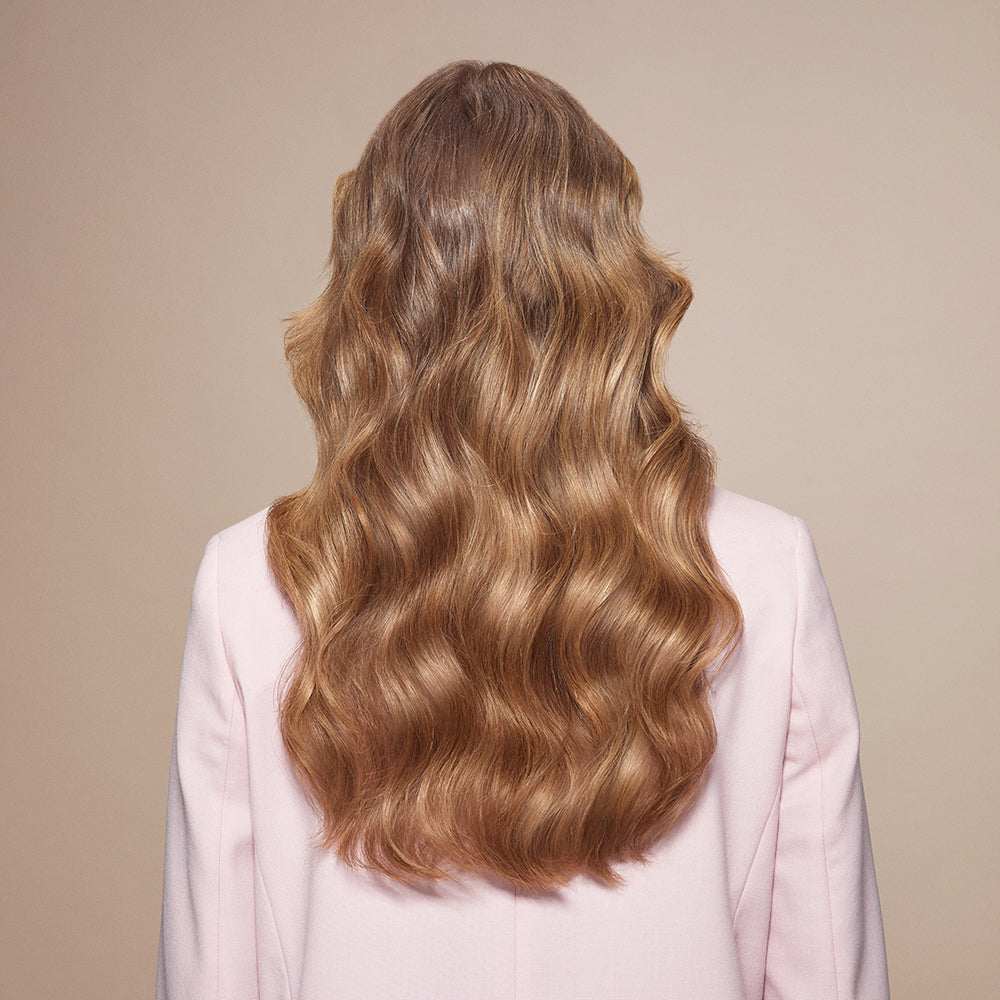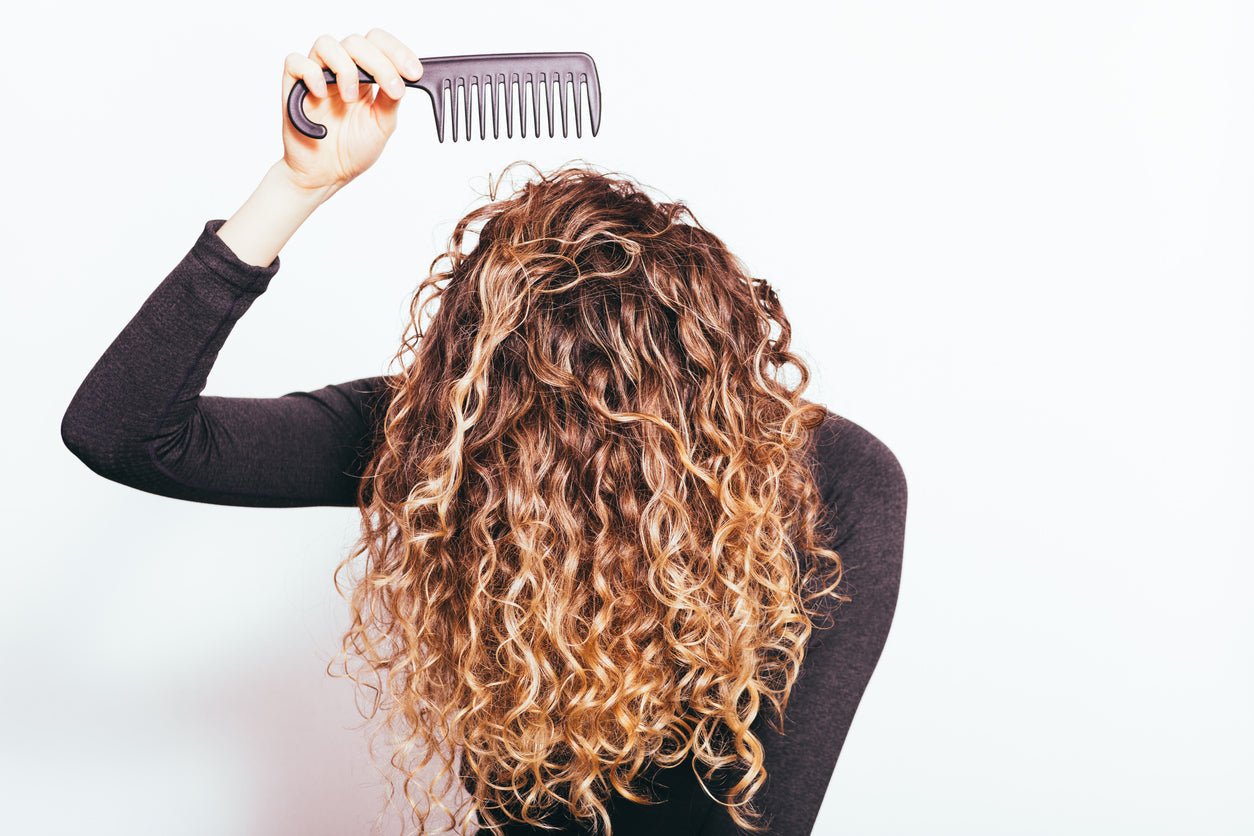In a world where luscious locks are seen as desirable, the quest for thicker, healthier hair is a common pursuit for many. While genetics largely determine the natural thickness of our hair follicles, there's no shortage of methods and techniques to enhance the appearance of thickness and promote overall hair health. From nourishing scalp treatments to mindful dietary choices, there are plenty of ways to boost volume and combat breakage. So, why do some people have thicker hair than others, and how can we achieve those coveted voluminous tresses? Let's delve into the science behind hair thickness and explore a range of practical tips to help you achieve the hair of your dreams and learn how to get thicker hair.
Why Do Some People Have Thicker Hair Than Others?
The most significant factor in determining hair thickness is genetics. If your parents have thick hair, there's a good chance you will too. Specific genes control the diameter of hair strands and the density of hair follicles on your scalp. Different ethnic groups also have different hair characteristics. For example, people of Asian descent often have the thickest hair strands, while those of African descent may have denser but finer hair.
Hormones, especially androgens like testosterone, play a crucial role in hair growth and thickness. Higher levels of androgens can lead to thicker hair. However, these same hormones can cause hair thinning in certain areas, like with male pattern baldness, due to genetic sensitivity of hair follicles. Thyroid hormones also affect hair thickness, and conditions like hypothyroidism and hyperthyroidism can change hair texture and thickness.
Hair tends to be finer and less dense in children and thickens during adolescence due to hormonal changes. Hair often reaches its peak thickness in young adulthood. Over time, hair follicles can shrink, leading to thinner hair strands. As people age, hair can become thinner due to changes in hair follicle function and a decrease in the number of active hair follicles.
Let's Hear From A Hair Expert
"Genetics play a big role in hair thickness, but there’s a lot that you can do to help your hair look fuller and healthier," says Jacqui McIntosh, trichologist and Bellissima hair ambassador.
"Small daily habits, like using gentle hair ties, nourishing your scalp, and being mindful with heat styling, can make a difference in preventing breakage and improving the appearance of your hair’s density. Combined with a balanced diet rich in protein, vitamins, and minerals, these steps give your hair the support it needs to look and feel its best."
"To take it a step further, professional treatments, such as scalp masks or microneedling, can also help stimulate growth and strengthen follicles over time. With the right combination of care, nutrition, and styling, it’s possible to enhance your hair’s natural volume while keeping it healthy, shiny, and resilient."
- Jacqui McIntosh, Trichologist and Bellissima ambassador
What Causes Thin Hair?
According to the American Academy of Dermatology Association, most people lose 50–100 hairs each day, as old hair falls out, and new hair regrows from the same hair follicles. However, sometimes hair thinning can happen at a faster rate. Understanding these factors can help in managing and potentially mitigating hair thinning.
Lifestyle habits that can contribute to hair thinning include:
- Overtreating your hair: This includes colour treatments, perms, and relaxers.
- Using harsh hair products: These hair products include extreme-hold hair sprays and gels.
- Wearing tight hairstyles: Whether you’re wearing an updo or pulling your hair up in a ponytail for working out, this can tug on your hair and break it from the follicles, causing thin spots over time.
- Not getting enough of certain nutrients in your diet: Iron, folic acid, and other minerals all help follicles produce hair naturally.
- Experiencing chronic stress: Stress is related to an uptick in hormones like cortisol. Too many stress hormones can trigger a condition like telogen effluvium, in which your hair can fall out, and the hair follicles enter a long “resting” phase where new hair doesn’t grow.
Can Hair Become Thick Again?
While you can't change the fundamental texture of your hair follicles, there are plenty of ways to make your hair look thicker and reduce issues like breakage and hair loss. This includes addressing any underlying health concerns that might be contributing to thinning, maintaining a balanced diet and managing stress and by following good hair health practices. By following these steps, you may notice improvements in hair thickness and overall hair health over time.
However, if your hair is thinning due to a medical condition you should always speak to your GP or a medical professional.
How To Get Thicker Hair?
Read our top 8 tips to help your hair become thicker
1. Diet and Supplements
A well-balanced diet plays a crucial role in promoting hair thickness and overall hair health. Incorporating protein-rich foods such as lean meats, fish, eggs, and legumes provides the building blocks for strong, healthy hair. Additionally, consuming plenty of fruits and vegetables rich in vitamins A, C, D, and E, along with minerals like iron, zinc, and biotin, supports optimal hair growth. Supplements containing these nutrients can also be beneficial for addressing any deficiencies contributing to thinning hair.
2. Scalp Masks And Treatments
Regularly treating your scalp to nourishing masks and treatments can significantly improve hair thickness. Ingredients like castor oil, known for its moisturising properties and ability to stimulate hair growth, can be applied directly to the scalp and massaged in. Coconut oil, avocado oil, and argan oil are also popular choices for scalp treatments due to their hydrating and nourishing effects. These treatments help improve blood circulation to the scalp, deliver essential nutrients to the hair follicles, and promote thicker hair growth.
3. Microneedling
Microneedling, or dermarolling, is a technique that involves using a small device equipped with tiny needles to create micro-injuries on the scalp. This process stimulates the production of collagen and increases blood flow to the scalp, which in turn promotes hair growth and thickness. Microneedling can also enhance the absorption of topical treatments and stimulate the hair follicles to produce thicker, healthier hair strands.
4. Haircut
Regular trims are essential for maintaining the overall health and appearance of your hair. Removing split ends and damaged hair prevents breakage and allows the hair to grow stronger and thicker. Opting for layered hairstyles can add volume and texture to thin hair, making it appear fuller and more voluminous.
5. Shampoo And Conditioning
Choosing the right shampoo and conditioner can make a significant difference in the appearance of thin hair. While shampoo and conditioner can’t actually make your hair thicker, it can give the appearance of thickness by adding volume. Look for products specifically formulated to add volume and thickness, containing ingredients like biotin, collagen, keratin, and panthenol. These ingredients help strengthen and volumize hair strands, giving the appearance of thicker, fuller hair. Additionally, avoid overwashing your hair, as excessive washing can strip away natural oils and contribute to hair thinning.
6. Brushing
Gentle brushing with a soft-bristle brush helps distribute natural oils from the scalp to the ends of the hair, promoting overall hair health and thickness. Avoid brushing hair when it's wet, as wet hair is more prone to breakage. Instead, use a wide-tooth comb to detangle hair gently, starting from the ends and working your way up to the roots.
7. Hair Accessories
Using hair accessories like silk scrunchies and hair wraps can also help in maintaining hair thickness. Silk hair accessories are gentle on the hair and minimise breakage compared to traditional elastic hair ties, which can cause damage and lead to hair thinning over time. Incorporating silk scrunchies into your hair routine can help protect your hair and promote thicker, healthier-looking strands.
8. Styling Tools and Methods
When using heated hair styling tools, such as hair straighteners, hot brushes and hair dryers, it's crucial to prioritise the health and integrity of your hair. Heat styling can cause damage to the hair cuticle, leading to breakage, split ends, and overall hair thinning. To minimise the risk of heat damage, it's essential to choose styling products specifically formulated to protect the hair from high temperatures.
Hair styling tools can also be a great way of adding volume to your hair. Whether you have naturally curly hair and use a diffuser to add volume to your locks or are looking to achieve a salon worthy blowout the possibilities are endless. Read our guide, how to add volume to hair for more information.
In addition, you should also use heat protectant sprays, serums, or creams containing ingredients like silicone, which create a protective barrier around the hair shaft to shield it from heat damage. These products help to minimise moisture loss, prevent the hair from becoming brittle, and reduce the likelihood of breakage and thinning.
Explore Hair Styling Tools
At Bellissima Italia, we're committed to helping everyone of all ages and hair types achieve their desired hairstyles with confidence and ease.
Our range of hair styling tools, including diffusers, straighteners, hot brushes, stylers and hair dryers, are designed with professional performance and innovative technology in mind. Featuring steam, infrared, ceramic coating, and ioncare technology, our products prioritise salon quality results without compromising the health of your hair.
With Bellissima Italia, you can style your hair to perfection while keeping it hydrated, soft, shiny, and frizz-free. Discover the power of our hair styling tools and unleash your hair's full potential today!


